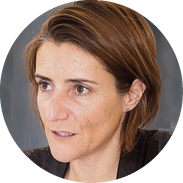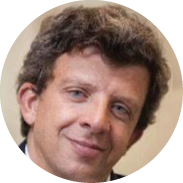Helena Silva, CEiiA Board
Miguel Braga, CEiiA Board
The current pandemic has highlighted the weaknesses of a country highly dependent on foreign countries to procure equipment and other critical means to fight the current coronavirus. This pandemic triggered a global economic and social crisis and changed industrial structures substantially. Changes in paradigms pose a threat to the current industrial structures but offer also opportunities for a new positioning. Portugal must take advantage of such opportunities and become the owner of its destiny.
In the economic crisis experienced in 2008, Portugal was able to react and became a pioneer in electric mobility. It was the first country to build an interoperable charging network extending from the north to the south of the country. This resulted in a leadership position in fast charging as it has been foreboded by EFACEC, but also in mobility management systems with particular emphasis on mobi.me, developed by CEiiA which stands out and was recognized by the UN as a leading example as regards managing mobility in cities and which later resulted in a partnership agreement signed between CEiiA and Galp and the resulting creation of the Gowithflow company, a national leader in the management of electric mobility.
In the current crisis, Portugal is better prepared to face new challenges. Our country is now at the forefront, is considered “strongly innovative” and takes the 12th position as the most innovative in the European Union, according to the “2020 European Innovation Scoreboard”. Considering the ambition to reach 3% of GDP allocated to R&D expenditure by 2030, this approach should include industrialization programs putting together science and industry for the development of new products and services in areas such as mobility, aerospace, energy, the sea, agri-food and life sciences.
To achieve this objective we must develop “innovation agendas” to promote the contribution of science for the development of new products and services with a strong impact and with internationalization potential. Thus, it’s not enough to have the ambition to reach 3% of GDP in R&D expenditure by 2030. At least 2/3 of this investment should be allocated to design new products and services.
To that end CEiiA has been working in recent years to create this capacity and increase the role of science and its integration with industry, interpreting trends and inducing new opportunities for the development of new technologies, products and services.
CEiiA started providing engineering services, promoting an increase in the competitiveness and complexity of the offer of national companies to enter the global supply chains in the automotive and aeronautics areas with projects, as it is the case of the Leonardo Helicopters and Embraer’s KC390.
The KC-390 is the largest aircraft by EMBRAER and was also the largest engineering program developed in Portugal. CEiiA led the national participation together with OGMA and was in charge of the development and certification of three large modules that correspond to 2/3 of the plane’s structure. CEiiA carried out more than 600 thousand hours of engineering work involving 170 engineers from 9 nationalities. With this program, a national capacity was created to work on any aeronautical program at international level, from the preliminary stages of development through certification and aeronautical industrialization.
More recently, CEiiA moved to the development of “proprietary” products, fostering the creation of new national integrators and operators from which new value chains associated with the product and operation are created, thereby generating new opportunities for Portuguese companies, such as the ATL-100 aircraft development and industrialization program.
The appeal of Portugal for the ATL-100 Program is the direct result of the capacity generated in recent years in programs such as the KC-390. The ATL-100 is a light, multifunctional new generation aircraft for short distances and the first to be designed from operations and integrated with development/industrialization.
The capacity built with the development of proprietary products, based on the integration of different skills, from mechanics, software, electronics, aerospace, product design, process engineering, among others, made it possible to respond to the challenges of this pandemic and for the development and production of the invasive Atena ventilator from Portugal. This a clear example of the ability to mobilize and integrate the skills of different entities in order to respond to the urgency of the current context, thereby contributing to greater independence of Portugal in crisis situations such as this caused by COVID-19.
Thus, in a context of recovery and resilience in the country, the challenge involves, in addition to the Athena Ventilator in the area of medical devices or the ATL-100 in the area of aeronautics, the capacity to develop and industrialise products and services that induce value chains associated with the product cycle and the cycle of operation that may induce multiplier effects of public investment, namely in R&D, similar to what happened with Volkswagem Autoeuropa in the 90s.
The evolution of CEiiA and its position as an entity with the capacity to induce, develop and industrialize new products and services is allowing Portugal to become more and more the owner of its own destiny.








